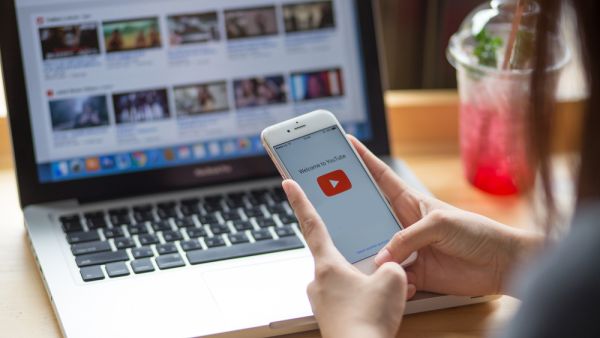YouTube says will take a 'stronger stance' on preventing hate speech against public figures and creators that use its platform in response to a widely publicized controversy earlier this year.
The platform says it has updated rules governing personal attacks and banned videos that 'maliciously insult' people based on their race, gender expression, or sexual orientation.
For the first time, those stricter guidelines will apply to not only individual users, but to everyone on the platform, whether they are a YouTube creator or a public official.
'We will no longer allow content that maliciously insults someone based on protected attributes such as their race, gender expression, or sexual orientation,' said Matt Halprin, vice president, global head of trust and safety at YouTube.
The move comes after US journalist Carlos Maza complained about 'clearly hurtful' homophobic and racist slurs in June, directed at him by prominent video-maker Steven Crowder.
Google-owned YouTube initially decided not to taken action against the videos, in which Maza’s accent and hand movements were mocked, as well as describing him as a 'lispy queer' and a 'Mexican gay guy' before saying it will review its harassment policy.
Six months after the incident, YouTube has announced a number of changes in an attempt to target 'demeaning language that goes too far.'
As a part of that effort, the platform says it will now ban what it considers targeted harassment campaigns like the one launched by Crowder.
It defines a campaign as insults that occur over various videos in a sustained effort to attack another user.
Stricter policies will also widen the scope of punishable content.
While previous policies prohibited overt threats against another person's life or well-being, new rules will attempt to also cover implied threats like brandishing a weapon while discussing another person.
'This includes content simulating violence toward an individual or language suggesting physical violence may occur,' Halprin said.
'No individual should be subject to harassment that suggests violence...As we make these changes, it’s vitally important that YouTube remain a place where people can express a broad range of ideas, and we’ll continue to protect discussion on matters of public interest and artistic expression.'
According to YouTube the stricter regulations will not only apply to videos, but also comments.
Channels that repeatedly 'brush up' against the new rules face losing their ability to make money on the platform, while content that repeatedly harasses someone may also be taken down.
Continued violations could lead to a channel being removed altogether.
In the past, YouTube has repeatedly attempted to use the demonetization of channels that frequently violate its terms while outright bans have been employed more sparingly.
This article has been adapted from its original source.








